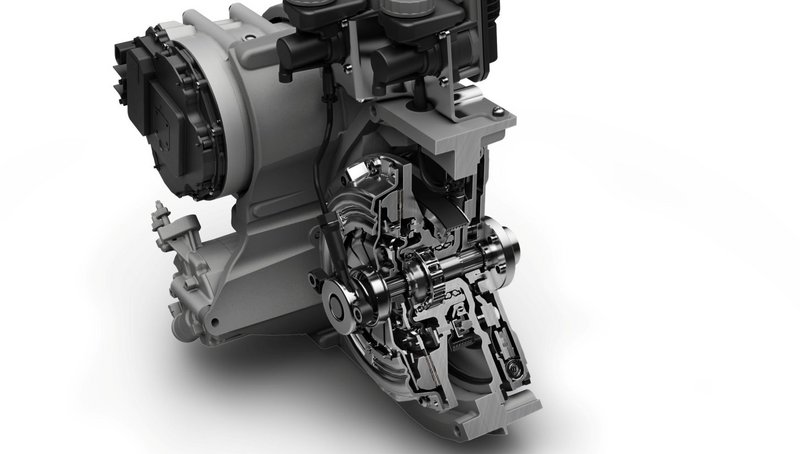Closely Integrated Module for 48 V Hybrid Systems from Continental and Schaeffler Boosts Driving Efficiency Further
- At the International Motor Show (IAA), Continental and Schaeffler will be presenting a prototype 48 V belt starter generator module to be installed between the engine and transmission
- This future 48 V architecture allows for even better use of fuel-saving driving strategies, as more electrical energy is available
- A second clutch enables the internal combustion engine to disengage from the powertrain at any time and to recover energy very effectively without engine drag torque
Frankfurt, Regensburg, Herzogenaurach, September 15, 2015. The cooperation between the international automotive suppliers Schaeffler and Continental, which has already proved its worth in the highly efficient Gasoline Technology Car hybrid vehicle, is also the source of another innovation: The compact module comprising a 48 V belt starter generator (BSG) and an integrated belt drive is a prototype solution for integrating a BSG between the internal combustion engine and transmission. Adding a second clutch in front of the BSG means that it can be driven by the belt in recuperation phases without the internal combustion engine having to be dragged along too. Because no drag losses occur, more power is available for fuel-saving driving strategies.
“The major benefit of BSG integration between the internal combustion engine and transmission is that recuperation becomes more efficient as a crucial source of energy for the 48 V side. Consequently, we estimate that a mild hybrid with a 48 V Eco Drive using the side-mounted architecture will be capable of saving an additional 5 percent of CO2," explained José Avila, Head of the Powertrain Division and Member of Continental's Executive Board.
“To assist customers in applying the BSG module for side-mounting, we have integrated the belt drive and the second clutch in a highly compact configuration. For series production, every millimeter counts," said Prof. Dr. Peter Gutzmer, Chief Technology Officer and Member of the Executive Board at Schaeffler.
Continental will be launching series production of the 48 V Eco Drive for several customers in 2016. The initial applications will involve integrating the BSG in the belt drive on the front side of the engine. This integration requires extremely minor modification of the vehicle architecture. In order to be prepared for the next level of 48 V integration, Continental and Schaeffler have now developed a generic concept, in the form of the P2-BSG module for side-mounting, which is intended to be ready for use from around 2020 onward.
Electrical and mechanical systems closely interlinked in the module
The 48 V belt starter generator is the centerpiece of the closely integrated P2-BSG module for side-mounting, and will enter series production at Continental as early as 2016. In terms of design, the BSG in the new prototype module for side-mounting is practically identical to the version for integration in the engine belt drive. In view of the limited space available for belt integration between the internal combustion engine and the transmission, Schaeffler has integrated the belt drive, including the tensioner, in the module in a very compact arrangement. The second clutch between the internal combustion engine and the BSG also comes from Herzogenaurach. Depending on the application, the accompanying LuK clutch actuator system can be either electrohydraulic or electromechanical.
In this arrangement, the internal combustion engine can be disengaged at any time when the clutch between the transmission and BSG is engaged. During recuperation phases, the work done by friction and the compressor output of the engine, which would otherwise absorb part of the kinetic energy from the vehicle's inertia mass, therefore have no effect. However, if the engine is idle, the full extent of the inertia mass of the coasting vehicle exerts its forces on the belt drive of the BSG. Braking energy recuperation is more efficient as a result.
Because a hybrid achieves its economy partly through the recuperation of kinetic energy during deceleration and partly due to the fact that the internal combustion engine is switched off as often as possible, more effective recuperation means that more electrical energy is also available. More extensive use can be made of intelligent driving strategies, such as electric torque assistance, supply to electrical consumers when the engine is idle, and a particularly fast, comfortable engine start.

Simone Geldhäuser
Head of Media Relations, Spokesperson Finance, Business and Technology
Vitesco Technologies

